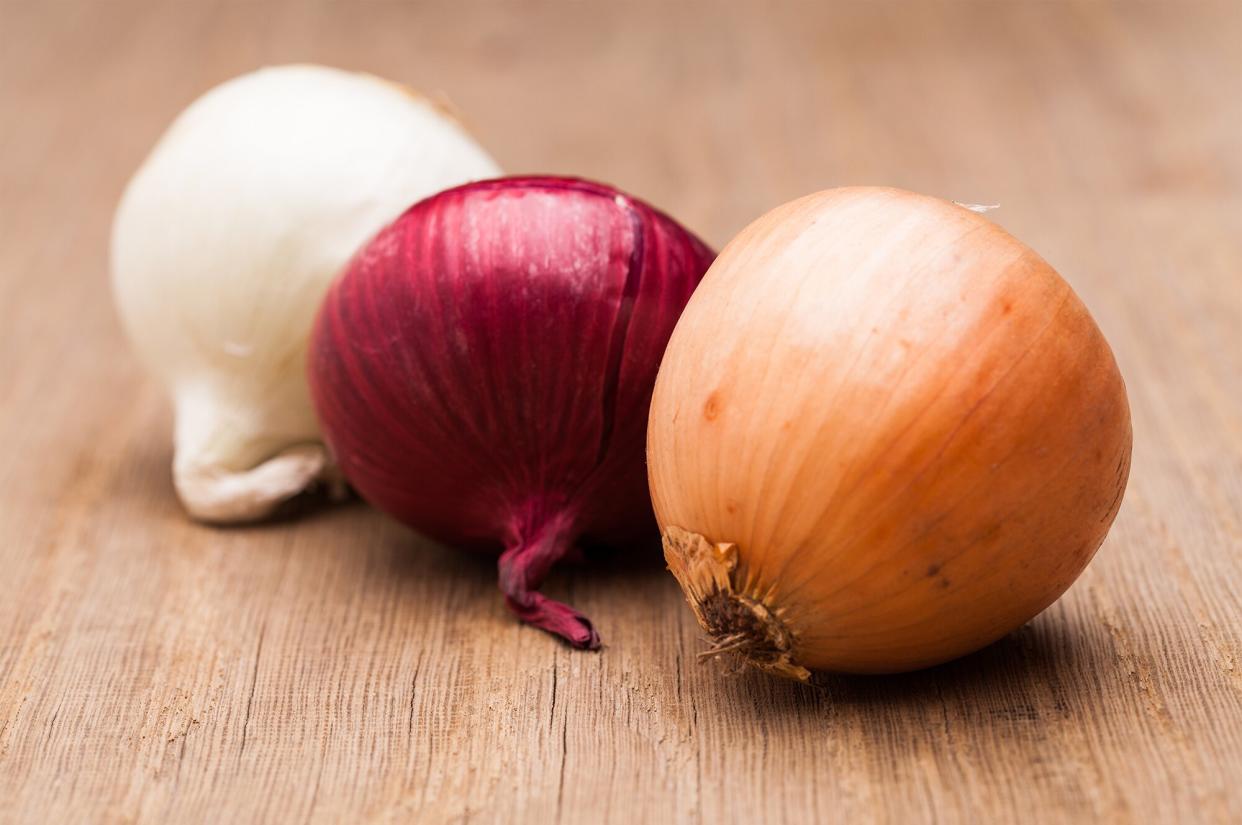Should You Refrigerate Onions? How to Store This Essential Ingredient to Maintain Peak Freshness

Getty Images
TABLE OF CONTENTS
On This Page
Best Way to Store Onions
How to Store a Cut Onion
How to Freeze
Shelf Life
Whether it's the pungent bite of a red onion or the mellow presence of sautéed yellow onions, onions are essential in cooking. From soups to stews to homemade sauces, as well as in salads and sandwiches, they star in a variety of dishes. For this reason—and because onions can stay fresh for months at a time—it's practical to have some stashed in your kitchen ready to be used at a moment's notice. But how they're stored can dictate how long you're able to preserve the vegetable's flavor.
Related: Garlic Can Stay Fresh for Up to 6 Months If Stored Correctly—Here's How
The Best Way to Store Onions
In general, onions like air, dry climates, and cool temperatures. Maintaining optimal storage conditions will extend their shelf life significantly.
Store in a Cool, Dry Place
The ideal temperature to store onions is around 45 to 55 degrees, according to Matthew Yee, chef at Farm to the People. For this reason, he says it's best to store onions in a cool, dry place like a cellar, pantry, or even a garage. While they can be stored whole in the fridge, Yee notes that this causes the onion to convert starch to sugar, and can result in soft or soggy onions.
Reduce Moisture
Onions should be taken out of any plastic grocery bag prior to storage and kept away from produce that emits moisture, such as potatoes. "If you leave whole onions in a grocery bag without air circulation, it will reduce shelf life by keeping moisture in and encouraging spoilage microbes to grow, such as mold," says Margarethe A. Cooper, Ph.D., associate professor of practice in the School of Animal and Comparative Biomedical Sciences at the University of Arizona. "High levels of moisture can also lead onions to sprout. If the bag you purchased or stored the onions in from the store is airtight, transfer them to a mesh bag or container that allows air circulation."
Keep Onions Away from Light
In addition to finding an area that's cool, dry, and well ventilated, keep onions out of direct sunlight. "Heat created by sunlight or other sources can encourage the growth of spoilage microbes such as mold," Cooper says.
How to Store a Cut Onion
Where and how you store your onions depends on whether they're whole or not. Unlike intact onions, an onion that has been cut is best stored in the refrigerator in a sealed plastic bag or airtight container. "It is important to note that apples, pears, and celery will absorb onion odors if stored near them, so making sure the onions are sealed can help prevent this from happening," Cooper says. "Onions themselves can also absorb apple and pear odors."
How to Freeze Onions
While it's not recommended to freeze whole onions, Cooper says chopped or sliced onions can be frozen. To do so, Yee says diced or chopped onions should be placed in a freezer bag with as much of the air squeezed out as possible. Know that freezing changes the texture of the onion, so Cooper recommends using onions that have been frozen for cooked foods rather than defrosting and eating them raw in a salad or sandwich.
How Long Onions Last
How long onions last depends on where they've been stored. Cooper says that in the refrigerator, peeled onions will last 10 to 14 days and chopped onions will last for seven to 10 days. While the refrigerator is not the best place to store whole onions, Cooper says they will generally last there for two months. "If stored in an area of your home that is cool, with good ventilation, and dry, whole onions can have a shelf life of three months or even up to six months, provided they are dry, firm, with skins intact, and not sprouting," she says. If kept in the freezer at or below zero degrees, frozen onions should be consumed within eight months.

